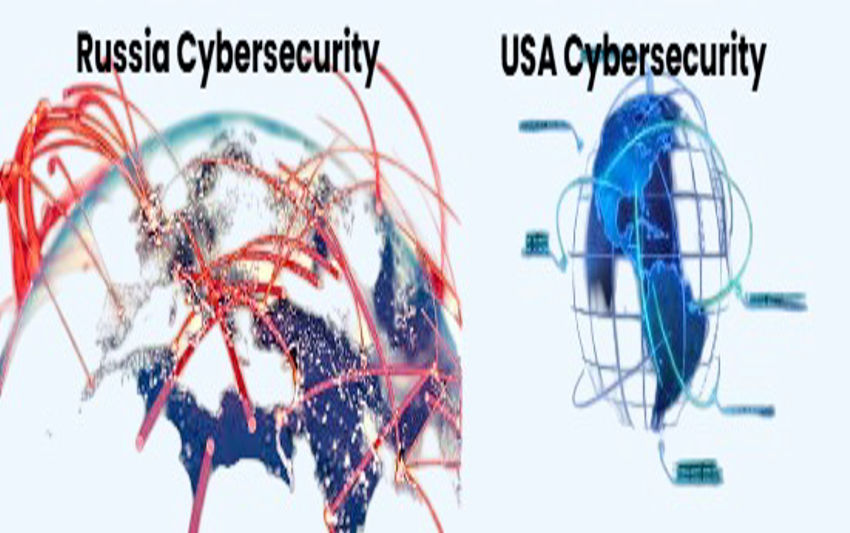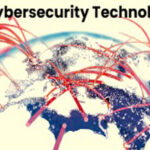In the rapidly evolving world of cyber security technology, two nations stand out as global leader Russia and the United States. Both countries possess advanced cyber capabilities, but their approaches, strengths, and weaknesses differ significantly. This article provides an in-depth comparison of Russian and American cyber security technologies examining their offensive and defensive strategies, government policies, and global influence.
1. Government and Military Cyber Capabilities
Russia’s Cyber Warfare Strategy
Russia has long been recognized for its sophisticated state-sponsored cyber operations, often linked to groups like APT29 (Cozy Bear) and APT28 (Fancy Bear). The Russian government integrates cyber warfare into its hybrid warfare doctrine, combining hacking, disinformation, and electronic warfare to achieve geopolitical goals. Key agencies overseeing cyber operations include:
Federal Security Service (FSB) Responsible for counterintelligence and cyber defense.
GRU (Military Intelligence) – Conducts offensive cyber operations, including election interference and infrastructure attacks.
Russian Cyber Command Focuses on military-grade cyber warfare.
Russia excels in stealthy, long-term espionage campaigns, often targeting government institutions, energy grids, and media organizations in rival nations.
USA’s Cyber Defense and Offense
The U.S. takes a more structured and institutionalized approach to cyber security, with agencies like:
National Security Agency (NSA) Leads signals intelligence (SIGINT) and cyber defense.
Cyber Command (USCYBERCOM) Conducts military cyber operations.
DHS is responsible for safeguarding vital infrastructure.
Unlike Russia’s asymmetric cyber tactics, the U.S. emphasizes transparency, legal frameworks, and public-private partnerships. The Pentagon follows strict rules of engagement in cyber warfare, avoiding reckless attacks that could escalate conflicts.
2. Private Sector and Cyber security Innovations
Russia’s Cyber security Industry
Russia has produced world-class cyber security firms, most notably Kaspersky Lab, known for its advanced threat detection and antivirus solutions. However, Western sanctions and suspicions of government backdoors have limited Kaspersky’s global reach.
Russian hackers, both state-sponsored and independent, are highly skilled in penetration testing, malware development, and zero-day exploits. The country’s strong STEM education system ensures a steady pipeline of cyber talent.
USA’s Dominance in Cyber security Tech
The U.S. leads in corporate cyber security innovation, with companies like:
Palo Alto Networks A leader in firewall and cloud security.
Endpoint security and threat intelligence are CrowdStrike’s areas of expertise.
Microsoft (Azure Security) Provides enterprise-level cloud and AI-driven security
Rapid developments in blockchain security, quantum-resistant encryption, and AI-driven cyber security are encouraged by Silicon Valley’s startup culture. The U.S. also benefits from strong collaboration between tech giants and the Pentagon, ensuring cutting-edge defense mechanisms.
3. Cyber Espionage and Attack Methods
Russia’s Preferred Tactics
Disinformation & Social Engineering Using bots and fake accounts to manipulate public opinion.
Ransomware & Destructive Malware Attacks like NotPetya caused billions in global damage.
Supply Chain Attacks Compromising software updates to infiltrate targets (e.g., SolarWinds hack).
USA’s Cyber Operations
Intelligence Gathering The NSA’s PRISM program collects vast amounts of foreign data.
Stuxnet & Kinetic Cyber Attacks The U.S. and Israel famously used Stuxnet to sabotage Iran’s nuclear program.
Defensive Cyber Measures Proactive threat hunting and zero-trust security models.
4. Legal and Ethical Differences
Russia has looser cybercrime laws, allowing hackers to operate if they avoid targeting domestic entities.
USA enforces strict cybercrime prosecutions (e.g. FBI takedowns of ransomware groups) and follows international cyber norms.
5. Future Trends: AI, Quantum, and Cyber Warfare
Russia is investing in AI-driven disinformation and quantum hacking.
USA is focusing on autonomous cyber defense, post-quantum cryptography, and space cyber security.
Conclusion: Who Leads in Cybersecurity?
While Russia excels in offensive cyber operations and asymmetric warfare, the USA maintains superiority in defensive technologies, legal frameworks, and private-sector innovation. The future of cyber security will likely see both nations advancing in AI, quantum computing, and space-based cyber defense, ensuring an ongoing digital arms race.
For now, the U.S. remains the global leader in cyber security infrastructure but Russia’s aggressive tactics ensure it remains a formidable adversary.
Key Phrases Used:
Russia vs. USA cyber security comparison
State-sponsored cyber operations
Advanced cyber defense strategies
Kaspersky Lab vs. U.S. cyber security firms
Cyber warfare tactics: Russia vs. USA
AI and quantum cyber security race
Future of global cyber conflict
This article provides a balanced, SEO-optimized comparison of Russian and American cyber security technologies, ideal for readers interested in geopolitics and digital security

